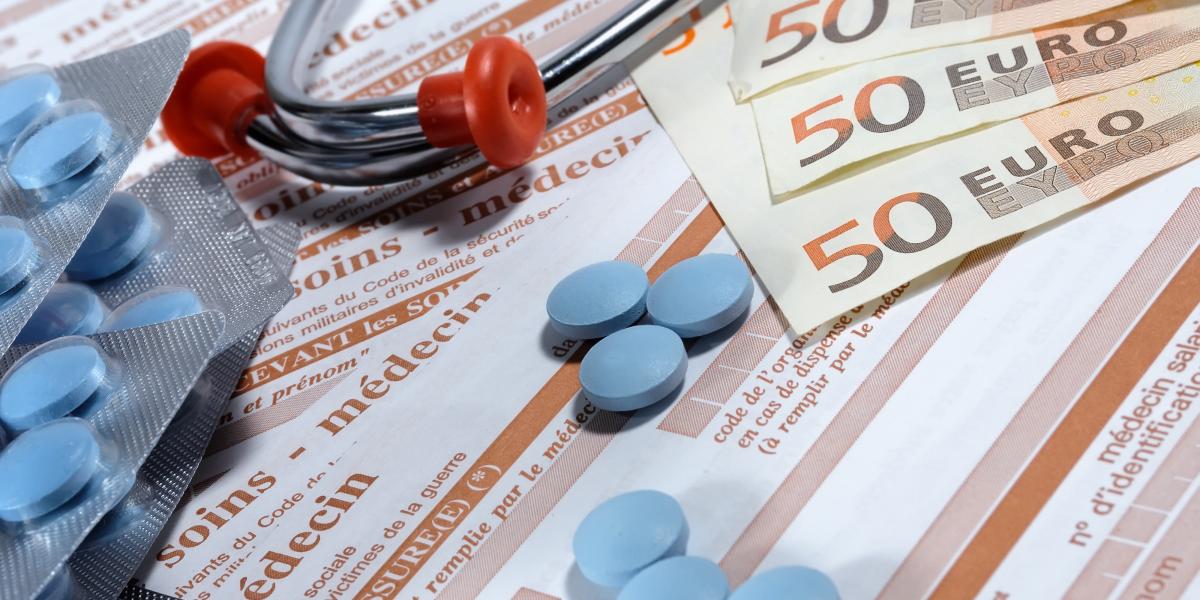Recently, a collective opinion piece published on April 15, 2025 in the French newspaper Le Monde denounced a shortage of many psychotropic drugs essential for the treatment of certain psychiatric problems in France. The list is long and growing by the week:
…sertraline and venlafaxine, the gold standard antidepressants; lithium, essential for bipolar patients, with an “undetermined” date of availability; and even extended-release olanzapine, reserved for the most difficult-to-stabilize forms, is unavailable due to a manufacturing defect in the injection needles.
These shortages can cause serious problems for some patients, who are unable to keep up with their treatment and find themselves in sometimes complicated and desperate situations. Later in the article, the authors present several reasons for these shortages: dependence on foreign suppliers, production problems, and insufficient national strategic reserves: “The causes of these drug shortages are multiple: fragile supply chains, dependence on single foreign industrial sites…”
The authors then briefly mention another cause: “As pharmaceutical companies’ commercial strategies favor more profitable markets, price regulation in France is considered insufficiently attractive by manufacturers.” Of all the causes cited, this is indeed the one: the French state’s intervention in the pharmaceutical market is the real cause of drug shortages, driving manufacturers to other, less restrictive markets.
It’s a story as old as time, and one that we need to keep reminding ourselves: shortages of goods are the result of political interventionism, which—in trying to make goods accessible to the greatest number—only creates distortions and shortages.
Who’s to blame for the shortages?
For several years, the Comité économique des produits de santé (CEPS)—the public committee responsible for negotiating and setting the prices of reimbursable medicines—has been setting prices and sometimes imposing price reductions on certain medicines.
The objective of making goods accessible to as many people as possible leads to an artificial increase in demand for the same goods, while supply and production capacity remain unchanged. Producers cannot raise the selling price of their goods while production and input costs continue to rise in an inflationary and highly-regulated economy. Inevitably, they end up producing at a loss. They then have several options: reduce production, divert their capital and capital goods to other sectors not subject to price controls, change geographical markets, or go bankrupt. Mises wrote,
Economics does not say that isolated government interference with the prices of only one commodity or a few commodities is unfair, bad, or unfeasible. It says that such interference produces results contrary to its purpose, that it makes conditions worse, not better, from the point of view of the government and those backing its interference.
In the case of the shortage of psychotropic drugs in France, the answer can be found in the article in Le Monde: “Manufacturers point out that the prices of ‘essential’ drugs are too low in France and do not hesitate to redirect their sales to more lucrative markets.” Pharmaceutical companies are therefore opting to redirect their production to more lucrative, less regulated markets, or to reduce production of certain drugs, leading to shortages.
No Choice
In France, the prices of psychotropic drugs are among the lowest in Europe—often 30 percent to 50 percent lower than in neighboring countries. These very low prices imposed by the CEPS—combined with frequent downward price revisions, as in 2017—reduce the profitability of psychotropic drugs, especially those with low margins. Worse, there are also provisions that give the committee the right to impose retroactive price cuts if volumes exceed production forecasts, thereby discouraging laboratories from producing more drugs. An aberration!
What lessons can we learn from this? Economic interventionism—which aims to make certain goods available to as many people as possible—has the opposite effect to that originally intended. It’s always the consumers, to whom the state had promised easy access to these goods, who find themselves constantly penalized. In the French example, unfortunately, it is vulnerable people suffering from psychiatric pathologies who are affected. A closer look reveals that it is not the entrepreneurs and capitalists who are to blame, but the state, which disrupts the market for these goods. A lesson in political economy as old as the Emperor Diocletian. In Defense, Control, and Inflation, we read, “Even capital punishment could not make price control work in the days of Emperor Diocletian and the French Revolution.”
The primary culprit behind these shortages is the state itself, which chooses to ignore fundamental economic principles. It ignores the very principle of scarcity, the role of prices as a reflection of the relative scarcity of goods, the informative role of prices as determinants of costs for the entrepreneur, and the fact that its legislative action on a given sector and a specific good will have unexpected consequences on society as a whole. This is Hazlitt’s eternal lesson in political economy: any public intervention must consider all the direct and indirect consequences of its policy, or risk generating perverse effects—invisible at first glance—that exceed the immediate visible benefits. Hazlitt wrote,
The art of economics consists in looking not merely at the immediate hut at the longer effects of any act or policy; it consists in tracing the consequences of that policy not merely for one group but for all groups.
The state also chooses to ignore another basic rule of the market: trade is an uninterrupted flow, always toward markets where profits can be made and where goods are most-urgently desired. If regulations, controls, and barriers are erected, it will inevitably bypass them and move on to other, more open countries.
However, anyone who knows and studies history knows that similar mistakes have been made before. The harmful effects of price controls have been known since Diocletian’s Edict of the Maximum in 301. This Edictum de pretiis rerum venalium set a maximum price for over 1,000 goods, services, and wages throughout the Roman Empire. In true Roman tradition, anyone who failed to comply with this edict was punished by death. The consequences were many: shortages, the emergence of the black market, and, inevitably, non-compliance with the edict. Mises wrote in Economic Policy: Thoughts for Today and Tomorrow,
Every time the government gets the same result, everywhere the consequence is the same. Once the government fixes a maximum price for consumer goods, it has to go farther back to producers’ goods, and limit the prices of the producers’ goods required for the production of the price-controlled consumer goods.
What happens next? A headlong rush to more and more controls. Since the government always thinks it can solve a problem it has created, it will impose new constraints on producers and introduce tighter price controls. In our French example, the two proposed solutions to shortages are, not surprisingly, more controls and more government intervention. For example, imposing higher fines on laboratories that fail to meet their minimum and legal stock obligations.
If these additional interventions prove ineffective, the next step will either be rationing of the goods in question, greater control of individuals, or a return to common sense and an end to economic interventionism. Since the latter solution is rarely deliberately chosen by the state, the former is the most likely. It will also bring about the necessary increase in the coercive capacity of the state. It will gradually turn into a police state as its control over the economy increases. Interventionism is an unstoppable, infernal machine.
In the end, this double ignorance—historical and economic—is inevitably paid for, but never by politicians, always by consumers, who are the first to be affected by the goods in question. History rhymes and the same question remains: is it better to have an expensive, but available product or a cheap but unavailable one? Ironically, free markets are notorious for providing both affordable and abundant goods.


























